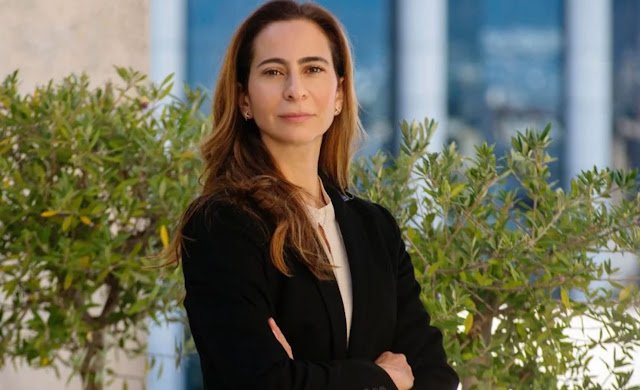Marina Hadjimanolis: Global challenges, such the ones that shipping faces, require global solutions
| Marina Hadjimanolis, Shipping Deputy Minister to the President of the Republic of Cyprus |
As another year comes to an end, international shipping continues to face complex and unpredictable challenges mainly due to its nature, being vulnerable to the volatile geopolitical climate and political and economic developments. Furthermore, the challenges of decarbonization and the green transition as well as the transformation of the way it operates through the digitalization of its processes, undoubtedly have put shipping under extreme pressure. The shortage of seafarers, in particular qualified senior officers, is another main concern of the shipping industry and unfortunately the predictions are rather pessimistic.
Shipping is an international industry, operating in a rather complex and unique framework, involving numerous stakeholders such as shipowners, ship managers and operators, flag and port authorities, seafarers etc.
At the same time, we have to recognize the key role of shipping in the supply chain, being an industry that transports almost 90% of world trade. The smooth operation of the supply chain until the delivery of the product to its final destination, cannot be taken for granted. In this respect, I would like to remind you of the case of the vessel “Ever Given” which, in 2021, became stuck in the Suez Canal for six days, affecting trade and creating numerous problems to the supply chain. I would like to further underline the importance of shipping during global crises and another such typical example is when during the Covid-19 pandemic, food, medical supplies and energy continued to be transported overcoming the unprecedented and unpredicted difficulties.
Taking into consideration the facts that I have already referred to, I firmly believe that in general, global challenges, such the ones that shipping faces, require global solutions, involving all stakeholders in the private and public sectors. Therefore, collective actions and initiatives are needed towards the sustainable growth of shipping, safeguarding at the same time the competitiveness of the sector. Moreover, as I have previously mentioned, because of the unique nature of shipping, we have to understand and recognize its particularities, in order to adapt and incorporate these accordingly, into the relative legal framework. A legal framework that needs to be pragmatic, ensuring a level playing field, avoiding the imposition of unilateral and regional measures and limitations.
In this context, the value and the role that the International Maritime Organization plays, as the leading organization for all regulatory matters relating to international shipping, is crucial.
Its role as the primary international forum on shipping matters affecting the sector worldwide, should be strongly supported by all the stakeholders. In particular, I firmly believe that the IMO has a critical role in safeguarding and strengthening the link between safe, secure, efficient and environmentally friendly maritime transportation, the development of global trade and the world economy.
Undoubtedly, the maritime sector should contribute its fair share to the decarbonization and energy transition and closely follow the developments with regards to digitalization. We recognize the will of the industry in this direction and in this respect, we need to listen and discuss the justifiable concerns that have been expressed. Having a complete picture of the difficulties and obstacles, but also the particularities of the sector, creates the appropriate conditions to formulate sustainable policies. Furthermore, it is of paramount importance to invest and promote in research and development programs in shipping and support innovative initiatives and actions.
With respect to the problem of the shortage of seafarers and in particular senior qualified officers, I strongly believe that it is our duty and obligation, as a shipping community, to collectively tackle this matter.
We all know very well, the significant role of the seafarer as one of the main pillars of the maritime operations. Therefore, we have to invest in maritime education, creating the necessary conditions for the development of a maritime culture in the new generation. Of course, it is equally important to ensure and further improve the working and living conditions of seafarers onboard our ships.
Cyprus, as an island with a long maritime history, attaches great importance to shipping. Our actions and efforts are not restricted to the further development of our Registry of Ships and our maritime cluster, but also extend to strengthening our role in the international maritime scene in order to have an active participation and significant contribution in the formulation of international and European maritime strategies and policies for the sustainable development of the maritime industry. In this context, we actively participate in the deliberations in the IMO and the EU, contributing to the efforts for decarbonization, while we have prioritized the need to support and promote maritime education. Furthermore, we are committed to continue relying on policies based on principles and values governing international law, ensuring at the same time a level playing field, supporting the long-standing policy of bridging the gap between developed and developing States, Flag and Port States, promoting constructive cooperation.
In closing, I would like to express my confidence that shipping will continue to substantially support the world economy. Acknowledging the challenges that maritime transport faces as well as the unstable environment, I reiterate that we need to collectively work towards a sustainable growth of international shipping, safeguarding the competitiveness of the sector.




